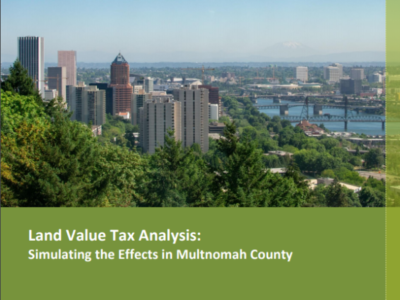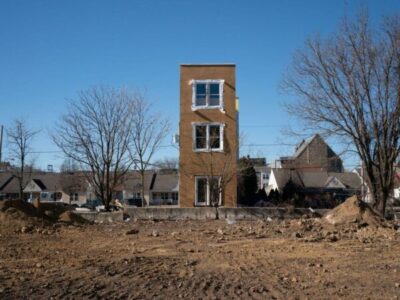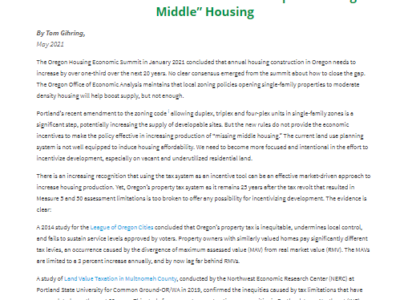Can we build our way out of the housing price inflation mess? We must, but how?
We Need to Build Our Way Out of This Mess
By Eli Dourado
The New York Times
OPINION – GUEST ESSAY
Aug. 11, 2021
Mr. Dourado is an economist and a senior research fellow at the Center for Growth and Opportunity at Utah State University.
Excerpts:
Many Americans experience the fallout from our failure to build in the housing market. Housing costs are at an all-time high, and over the past half-century, the median rent has outpaced the median household income. In our coastal hubs, our most productive cities, the numbers are even more dire. The typical home value in San Francisco, for instance, is $1.48 million, 12 times the city’s median annual household income of around $120,000.
Housing costs exacerbate economic hardship and inequality. Because the poor spend a greater share of their income on housing, high costs hit them the hardest. State homelessness rates track housing prices. The economist Matthew Rognlie showed in 2015 that capital’s rising share of income, an indicator of growing inequality, was caused entirely by increases in housing prices. Housing costs also perpetuate educational inequality; they are 2.4 times as high near high-scoring public schools as near low-scoring public schools. Children whose families are priced out of the best school zones forgo hundreds of thousands of dollars of lifetime income as a result.
The solution to high housing costs could not be simpler: Build more homes. To address housing affordability, many progressives have advocated subsidized affordable housing programs. These programs may not be adequate to generate sustained cost reductions, and they aren’t necessary. What will work with certainty are the laws of supply and demand. If we increase the supply of housing enough, prices will fall.
But to build housing and infrastructure, we must sweep aside the regulatory obstacles that stand in the way. In housing, zoning and related rules are the culprits behind the restricted supply of new homes.
While we would not tolerate open segregationist justifications for zoning today, laws that ban multifamily construction in certain neighborhoods — along with parking minimums and restrictions on lot coverage, setbacks and building heights — continue to perpetuate segregation by income and race. These rules reduce the supply of housing, increasing its cost. To become a nation that builds, we must tear down the regulatory obstacles. In housing, ordinances that prohibit multifamily housing need to go. Other policies that limit density, like parking minimums and height restrictions, must be liberalized.
Environmental assessments, of which over 10,000 are produced per year, likewise add years to the process. Even after finalization, a lawsuit filed by virtually anyone can challenge the adequacy of these documents and bring the project to a halt.
If we want to build infrastructure as well as housing, we need to address environmental review as well as zoning. We must protect the environment, but we need not do it indirectly with laws that operate only through paperwork and court cases. We should do it directly — with stricter air and water standards, smarter conservation policies and a carbon tax. A direct approach would enable speedy government decisions and get shovels in the ground. A pro-building, pro-environment deal, eliminating environmental review in favor of these direct protections, could improve the environment through stricter substantive standards and through a stimulative effect on new, clean infrastructure.
How did the most dynamic country on the planet become so sclerotic? We did it to ourselves. We enacted laws that privilege the status quo at the expense of change and progress. We liberally passed out veto rights to anyone with the money and wherewithal to hire a lawyer. If we want to reverse the damage and create a more prosperous future, we must make it easy to build.
Comment:
“Build more homes… Sweep away regulatory obstacles… Make it easier to build.” If we increase the supply of housing, prices will fall. We’ve heard this refrain before. What is left out of this hypothesis is the role of land speculation in raising housing costs – holding onto vacant and underutilized residential sites for windfall gains at resale. Government regulations are not the only obstacle, by far. If we prevailed on state governments to authorize changes in their property tax structures we could substantially increase the volume of building permits, as has been proven in Pennsylvania cities that have adopted a split-rate land value tax. Lower the tax rate on improvements and tax land values heavily – that will increase housing supply, and put a damper on residential land price inflation.
Tom Gihring, Research Director, Common Ground OR-WA
1 Comment
-
When a new site is being developed for building it should be automatically sold to the government. This should also apply to all real estate when it changes hands. This will make the cost of the building considerably less and also it will encourage entrepreneurs to be more active and employ more poverty-struck labour because they no longer need to buy the sites. The full anwer is below:
A More Stealthy Georgist Cat
The Georgist cat is small and lean
And often doesn’t get to be seen.
It hides in the branches of an economic’s-tree
So it takes a long while for you or for me,
To appreciate its cute and original form
That the landlords are so ready to scorn.The economic’s-tree has many fine branches
(On which we contend, there are no free-lunches).
Whilst the land-owning rich in the city all claim
As bloated capitalists, that they’re not to blame
For the gap that lays ‘twixt the poor and the wealthy,
But oppose any tax to make our nation healthy.Have you heard the tale of a committee, that
Thought to bell and get warning of a fat cat?
But could not find a soul to apply this device,
Because typically all were a council of mice!
Our Georgist cat has a bell ready-fitted,
(Which makes this analogy more to be pitted).This warning sound makes our ideals unwanted,
For a new tax is how politicians get doubted.
So the Georgist cat fails to catch any mice
That pose as landlords, along with their vice.
But how shall we silence the bell’s warning sound
And quieten the news that our pussy’s around?Our Georgist feline is in serious error,
‘Cause its bell draws attention not only to whether
Valuable sites can be ethically shared,
But also the rent from a site is declared
As the means to replace other kinds of taxation,
Which obviously causes the landlords vexation.In the economic’s tree many other beasts lurk
But are missed, after learning of Henry G’s quirk
Through the cat-finder’s recently brilliant discovery.
This writer seeks a new means for recovery
From our politi-unacceptable claim,
And stealthily project LVT once again.If we would but examine some more of the tree
Alternatives are waiting there for us to see.
Among them is hiding a far better way
For an equivalent LVT effect, to stay
In essence, without causing such evil offences
To the landlords and their partitioning fences.When a property-owner decides to sell–quick
The gov’ment buys its land, and not the public!
Its occupant then leases it for a similar fee
To the One-Tax of Henry George’s decree.Any buildings on-site should be sold as previously
But without the land, on which the price grievously
Had risen, with huge speculation in its advance
That stopped entrepreneurs from having a chance.The cost of this land must be raised through new bonds
Which the government sells and the public responds,
‘Though their interest-rate’s a bit lower than rent,
Their returns are more stable than the average tenant!
This process will take many years to complete–
So its financial support is no great money feat.After the lease-fees begin to collect,
Gov’ments can tax less, and firmly expect
To pursue this policy without change, until
All the lease-fees are site-rents in the national till.
With the land properly shared, the government sees
That site development stays with the current lessees.Other taxes that cause so much trouble and hate
Are scrapped, with great pleasure to all in the state,
Except for some bankers and the tax collectors
Whose actions no longer apply in these sectors.Land-rights will be shared through this simple device,
By a fast-growing country that takes our advice.




